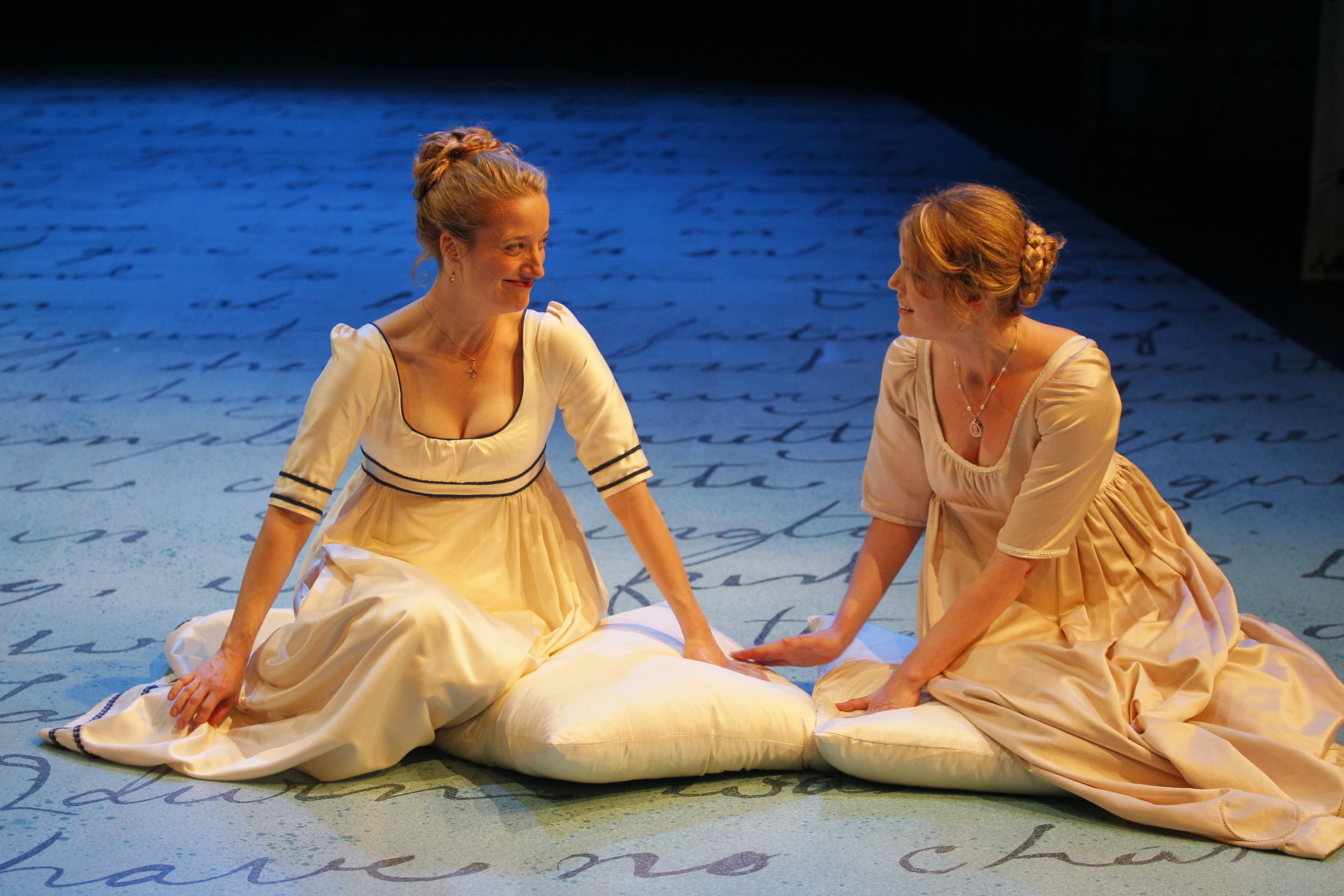Pride and Prejudice
Center Theatre at the Armory (Seattle Center), 216-0833, book-it.org. $25–$60. Runs Wed.–Sun. Ends Dec. 28.
It is a truth universally acknowledged that any staging of a Jane Austen novel is going to be a sure bet for Book-It (again), but of her canonical six, Pride and Prejudice, as the most beloved, brings challenges the others don’t—primarily competition in fans’ heads with the popular 1995 BBC miniseries, which, as much as anything, launched the Austen craze of recent decades. Richard Nguyen Sloniker, the Darcy in Book-It’s brisk and bubbling adaptation, bears the heaviest burden—not only because it’s a tricky role in itself, requiring a delicate balance of likability (so we root for him and heroine Elizabeth Bennet to fall for each other) and imperiousness (to give that inevitable attraction a plausible obstacle to overcome), but because much of the miniseries’ popularity was due to the Darcy of Colin Firth, who did his best to ruin the role for any other actor. Sloniker masters just that balance, and carries off some splendid scenes with the sharp, subtle Elizabeth of Jen Taylor (herself a frequent Austen adapter for Book-It). As their passions rise, their diction gets crisper, their consonants sparking like clashing swords.
The casting is just as ideal all the way through, the 15 actors—nine of whom take more than one role—adept at weighting and coloring every laugh line to make it land and deftly avoiding caricature even where it’s most tempting, with Austen’s most acerbically satirized characters: Kimberly King’s Mrs. Bennet, John Bianchi’s Mr. Collins, Sascha Streckel’s Mary. Especially marvelous are those actresses in smaller roles who in memorableness surpass even what Austen put on the page: Jesica Avellone and Kate Sumpter become the Charlotte Lucas and Miss Bingley to beat, casting themselves in my brain-movie each time I pick up the novel from now on.
Every P&P fan is going to have some quibble with director Marcus Goodwin’s script (previously mounted in 2000 and ’04), but one unanimous one, I bet, will be his inexplicable omission of one of Austen’s iconic lines, Mr. Bennet’s wry envoi after seeing three of his five daughters paired off: “If any gentlemen come for Mary or Kitty, send them in, for I am quite at leisure.” It’s the victim of a coda that felt precipitate; after three hours, I don’t see the harm another five minutes could have done, just to let us savor Austen’s happiest ending.
gborchert@seattleweekly.com







